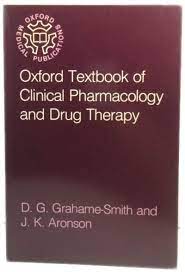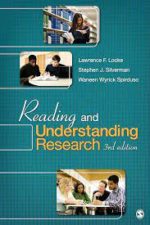Drug therapy is a fundamental part of general internal medicine, and is as demanding a process as diagnosis. The four sections of this practical guide cover the principles of clinical pharmacology, including drug development, use, and adverse reactions; the practical management of diseases with drugs; drug prescription; and over 300 commonly used drugs in a separate pharmacopoeia, identifying their generic names, usage, modes of action, properties, and effects.
“Reading and Understanding Research” has been added to your cart. View cart
Oxford Textbook of Clinical Pharmacology and Drug Therapy
KSh 2,955.00
Drug therapy is a fundamental part of general internal medicine, and is as demanding a process as diagnosis. The four sections of this practical guide cover the principles of clinical pharmacology, including drug development, use, and adverse reactions; the practical management of diseases with drugs; drug prescription; and over 300 commonly used drugs in a separate pharmacopoeia, identifying their generic names, usage, modes of action, properties, and effects.
1 in stock
Related products
-
District Laboratory Practice in Tropical Countries
KSh 21,240.00This new edition includes an update on HIV disease/AIDS, recently developed HIV rapid tests to diagnose HIV infection and screen donor blood, and current information on antiretroviral drugs and the laboratory monitoring of antiretroviral therapy. Information on the epidemiology and laboratory investigation of other pathogens has also been brought up to date. Several new, rapid, simple to perform immunochromatographic tests to assist in the diagnosis of infectious diseases are described, including those for brucellosis, cholera, dengue, leptospirosis, syphilis and hepatitis. Recently developed lgM antibody tests to investigate typhoid fever are also described. The new classification of salmonellae has been introduced. Details of manufacturers and suppliers now include website information and e-mail addresses. The haematology and blood transfusion chapters have been updated, including a review of haemoglobin measurement methods in consideration of the high prevalence of anaemia in developing countries.
-
Textbook of Global Child Health, 2nd Edition
KSh 9,562.00The second edition of the American Academy of Pediatrics Textbook of Global Child Health is pleased to contribute toward international efforts to improve the lives of the next generation. This new edition will help prepare and support child health professionals as they join international efforts on behalf of children.
A large multinational team of authors has joined together to produce the 2nd edition of this award-winning textbook, which focuses on 3 key areas:
- Foundational understanding of societal factors related to health and disease
- Appropriate care of children traveling internationally
- Clinical management of children in resource-limited areas
New in the 2nd edition:
- 29 updated chapters and sections
- New chapters on cardiology, neurologic disorders, nephrology, emergency medicine and critical care, and hematology/oncology
-
El Aserradero Lugubre / The Miserable Mill (Series Of Unfortunate Events)
KSh 150.00El Aserradero Lugubre / The Miserable Mill (Series Of Unfortunate Events)
-
So…You Think You Know The Bible? Mass Market Paperback
KSh 495.00What two people was time altered for? What man got his head nailed to the ground? What two Old Testament characters never died? If you like Bible trivia, you’ll love So. . .You Think You Know the Bible? Packed with more than 700 mind-stretching questions-no fluffy stuff here!-this brand-new trivia challenge will fascinate and entertain readers for hours. Thirty categories of 25 questions each-including “Who’s Who,” “Biblical Geography,” and “We Dare You to Answer These!”-are accompanied by a scoring system to track your success. More great Bible trivia from Barbour!
-
Psychology: The Science of Mind and Behaviour 4e
KSh 8,960.00Psychology: The Science of Mind and Behaviour fourth edition has been fully updated to reflect new developments in the field. Its celebrated pedagogical design has been reinforced with key research, issues and offers an exciting and engaging introduction to the study of psychology.The scientific approach brings together international research, practical application and the levels of analysis framework to encourage critical thinking about psychology and its impact on our daily lives. Key features:•Brand new! Psychology at Work interviews from Psychologists in the field provide a glimpse of their day-to-day work and the career path they have taken since completing a psychology degree. •Research Close Ups reflect new research and literature as well as brand new critical thinking questions to increase analysis and evaluation of the findings. •Core subject updates such as DSM-5 for psychological disorders. •Current issues and hot topics such as, social media, prosociality, critical perspectives of positive psychology and coverage of the replication crisis to prompt debates on the questions facing psychologists today.•Focus Arrow Boxes encourage critical analysis and application of the text.
-
The $100 Startup: Reinvent the Way You Make a Living, Do What You Love, and Create a New Future
KSh 1,495.00“Thoughtful, funny, and compulsively readable, this guide shows how ordinary people can build solid livings, with independence and purpose, on their own terms.”—Gretchen Rubin, author of the #1 New York Times bestseller The Happiness Project
Still in his early thirties, Chris Guillebeau completed a tour of every country on earth and yet he’s never held a “real job” or earned a regular paycheck. Rather, he has a special genius for turning ideas into income, and he uses what he earns both to support his life of adventure and to give back.
Chris identified 1,500 individuals who have built businesses earning $50,000 or more from a modest investment (in many cases, $100 or less), and focused on the 50 most intriguing case studies. In nearly all cases, people with no special skills discovered aspects of their personal passions that could be monetized, and were able to restructure their lives in ways that gave them greater freedom and fulfillment.
Here, finally, distilled into one easy-to-use guide, are the most valuable lessons from those who’ve learned how to turn what they do into a gateway to self-fulfillment. It’s all about finding the intersection between your “expertise”—even if you don’t consider it such—and what other people will pay for. You don’t need an MBA, a business plan or even employees. All you need is a product or service that springs from what you love to do anyway, people willing to pay, and a way to get paid.
Not content to talk in generalities, Chris tells you exactly how many dollars his group of unexpected entrepreneurs required to get their projects up and running; what these individuals did in the first weeks and months to generate significant cash; some of the key mistakes they made along the way, and the crucial insights that made the business stick. Among Chris’s key principles: If you’re good at one thing, you’re probably good at something else; never teach a man to fish—sell him the fish instead; and in the battle between planning and action, action wins.
In ancient times, people who were dissatisfied with their lives dreamed of finding magic lamps, buried treasure, or streets paved with gold. Today, we know that it’s up to us to change our lives. And the best part is, if we change our own life, we can help others change theirs. This remarkable book will start you on your way.
-
Information Governance and Assurance: Reducing risk, promoting policy
KSh 10,780.00This comprehensive textbook discusses the legal, organizational and ethical aspects of information governance and assurance and security and their relevance to all aspects of information work.
Information governance describes the activities and practices which have developed to control the use of information, including, but not limited to, practices mandated by law. In a world in which information is increasingly seen as a top-level asset, the safeguarding and management of information is of concern to everyone. From the researcher who is responsible for ethical practices in the gathering, analysis, and storage of data, to the reference librarian who must deliver unbiased information; from the records manager who must respond to information requests, to the administrator handling personnel files, this book with equip practitioners and students alike to implement good information governance practice in real-world situations.
Key topics covered include:
Information as an asset
The laws and regulations
Data quality management
Dealing with threats
Security, risk management and business continuity
Frameworks, policies, ethics and how it all fits together.
Readership: Fully supported by examples, discussion points and practical exercises, this is essential reading for everyone who needs to understand, implement and support information assurance policies and information governance structures. It will be particularly valuable for LIS students taking information management and information governance courses, and information professionals with an advisory or gatekeeping role in information governance within an organization.
-
Reading and Understanding Research
KSh 10,500.00Ideal for students, novice researchers, or professionals, this indispensable resource serves as a road map for readers who need to analyze and apply research findings. It helps them think critically about the credibility of what they are reading by showing them how to identify problems and develop constructive questions.
Key Features
- Assumes no prior knowledge of research procedures
- Provides readers with a step-by-step format for decoding the complex language and formats used in reports and reviews
- Includes the most common formats for both quantitative and qualitative inquiry
- Offers both illustrative examples and powerful training exercises
- Gives specific attention to strategies for critically appraising reported research
- Presents completely updated references as well as an annotated bibliography
Intended Audience
This text is appropriate for both upper-level undergraduate and graduate students across the social sciences enrolled in introductory research courses as well as students in professional preparation programs.










Be the first to review “Oxford Textbook of Clinical Pharmacology and Drug Therapy”